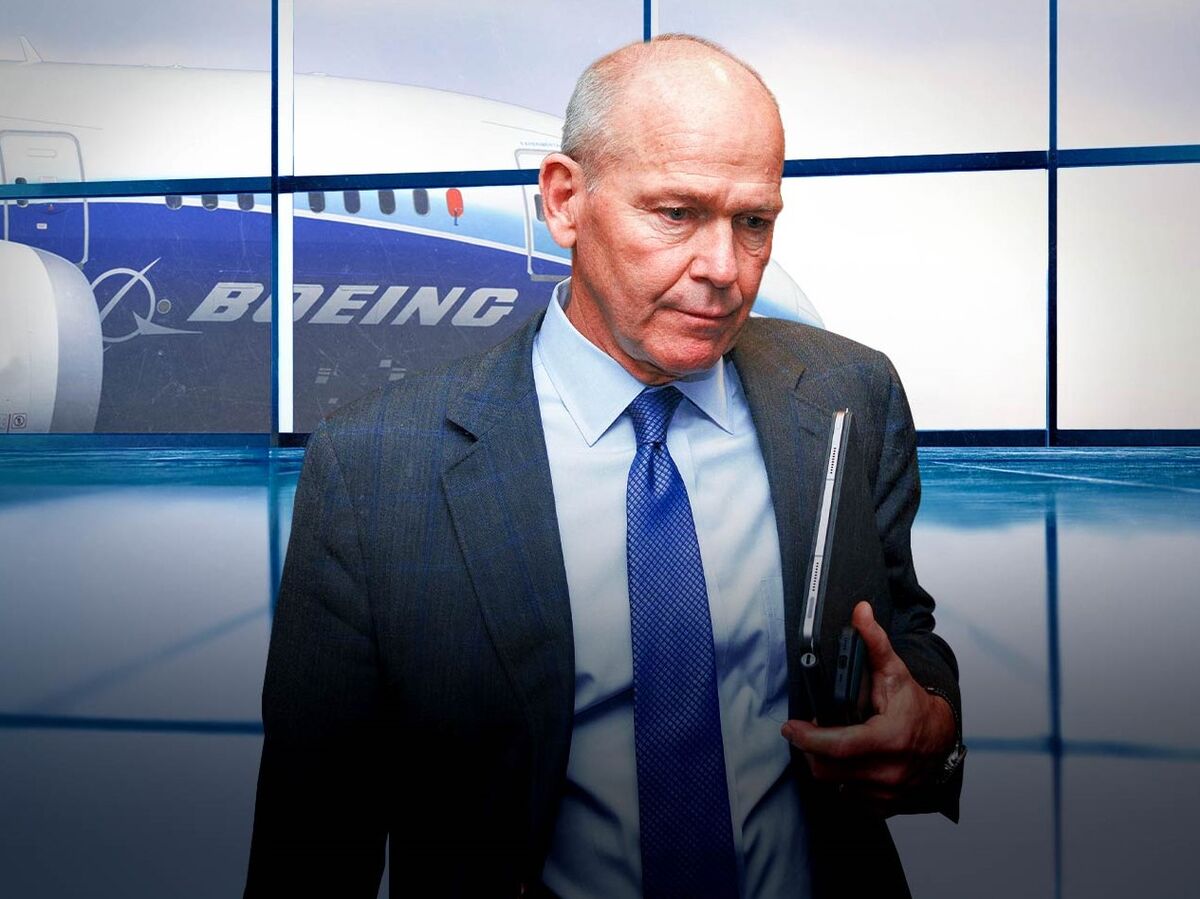Boeing faces escalating scrutiny and public distrust following alarming incidents and whistleblower revelations, prompting urgent calls for transparency and a renewed commitment to safety.
Boeing CEO Dave Calhoun will step down at the end of the year as part of a broad management shakeup for the embattled aerospace giant.
Boeing’s chairman and the head of the commercial airplane unit are also leaving as the company has initiated widespread media attention and mounting concerns from institutions like the Federal Aviation Administration (FAA).
The company’s chairman, Larry Kellner, will not stand for re-election as a board director as the board has elected a former semiconductor company, Qualcomm CEO Steve Mollenkopf, to succeed him.
The company also announced that Stan Deal, CEO of Boeing Commercial Airplanes, is retiring, with Stephanie Pope, Boeing’s chief operating officer since January, immediately taking his place.
“As you all know, the Alaska Airlines Flight 1282 accident was a watershed moment for Boeing,” Calhoun wrote to employees on Monday, according to a report by CNBC.
“We must continue to respond to this accident with humility and complete transparency. We also must inculcate a total commitment to safety and quality at every level of our company,” Calhoun added.
Calhoun has been a board member at Boeing for more than a decade and took the top job in January 2020 after the company dismissed its previous chief executive, Dennis Muilenburg, for his handling of the aftermath of the 2018 and 2019 two Boeing 737 Max crashes killed 346 people.
Earlier this month, a flight from Australia to New Zealand experienced a “technical event” that delivered a sudden movement that saw passengers violently thrown around the cabin.
According to CNN, approximately 50 people were treated for injuries on arrival, including one person in a severe condition.
Boeing 787-9 Dreamliner charted the flight, and officials have yet to voice whether a probe into the incident will be initiated.
In a statement to CNN, Transport Accident Investigation Commission spokesperson Simon Pleasants said: “We are gathering further information to inform a decision as to whether to open an inquiry.”
Yet, the flight from Australia is just one of the flawed flights that occurred under Boeing this month alone.
In March again, a Boeing 737-800 landed without one of its fuselage panels, promoting another round of insufficient safety protocols for the manufacturer after a January incident involving a Boeing 737 Max 9 saw a brand-new cabin door blow out a few minutes after takeoff.
The troublesome issue was that the Boeing 737-800 flew without a panel, which was only discovered missing during a post-flight inspection.
A senior official at Rogue Valley International Medford Airport, Amber Judd, said an investigation would be launched.
“We’ll conduct a thorough examination of the plane and perform all the needed repairs before it returns to service,” Judd said.
The FAA also investigated how the panel came apart. March also witnessed another dire incident for Boeing, as fumes were detected in the cabin of a 737-800 Alaska Airlines flight travelling to Phoenix, Arizona, causing pilots to head back to the departing airport.
The airline said: “Guests deplaned and boarded a different aircraft to continue on their way to Phoenix.”
The statement added: “Our maintenance team is inspecting the aircraft in question. We apologize to our guests for the inconvenience.”
The “death” of a whistleblower
To make matters worse, John Barnett, a longtime Boeing employee who had been providing evidence in a whistleblower lawsuit against the company, was found dead last week.
Working for Boeing for more than 30 years before retiring in 2017, a coroner said the death was from a “self-inflicted” wound, as the BBC reported.
A former quality manager, Barnett’s body was found in a vehicle in a hotel parking lot, police said.
Barnett was in the middle of giving deposition testimony in his whistleblower retaliation case against Boeing when he died, his lawyers told outlet NPR.
“He was in very good spirits and really looking forward to putting this phase of his life behind him and moving on,” the South Carolina-based attorneys said in a joint statement.
“We didn’t see any indication he would take his own life. No one can believe it,” the statement added.
Police communicated that they are actively investigating the case and are awaiting a formal cause of death as they try to determine the unknown circumstances surrounding Barnett’s death.
Barnett criticized Boeing for chasing profit rather than safety, saying that the company has a culture that prioritizes raw numbers and profits over quality.
“As a quality manager at Boeing, you’re the last line of defence before a defect makes it out to the flying public,” Barnett told The New York Times.
“And I haven’t seen a plane out of Charleston [ South Carolina] yet that I’d put my name on saying it’s safe and airworthy,” he added.
The string of alarming incidents involving Boeing’s commercial and private aircraft has cast a shadow over its reputation for safety and reliability.
As investigations unfold and authorities delve deeper into these incidents, questions loom large about the company’s commitment to safety standards and the welfare of passengers and crew alike.







